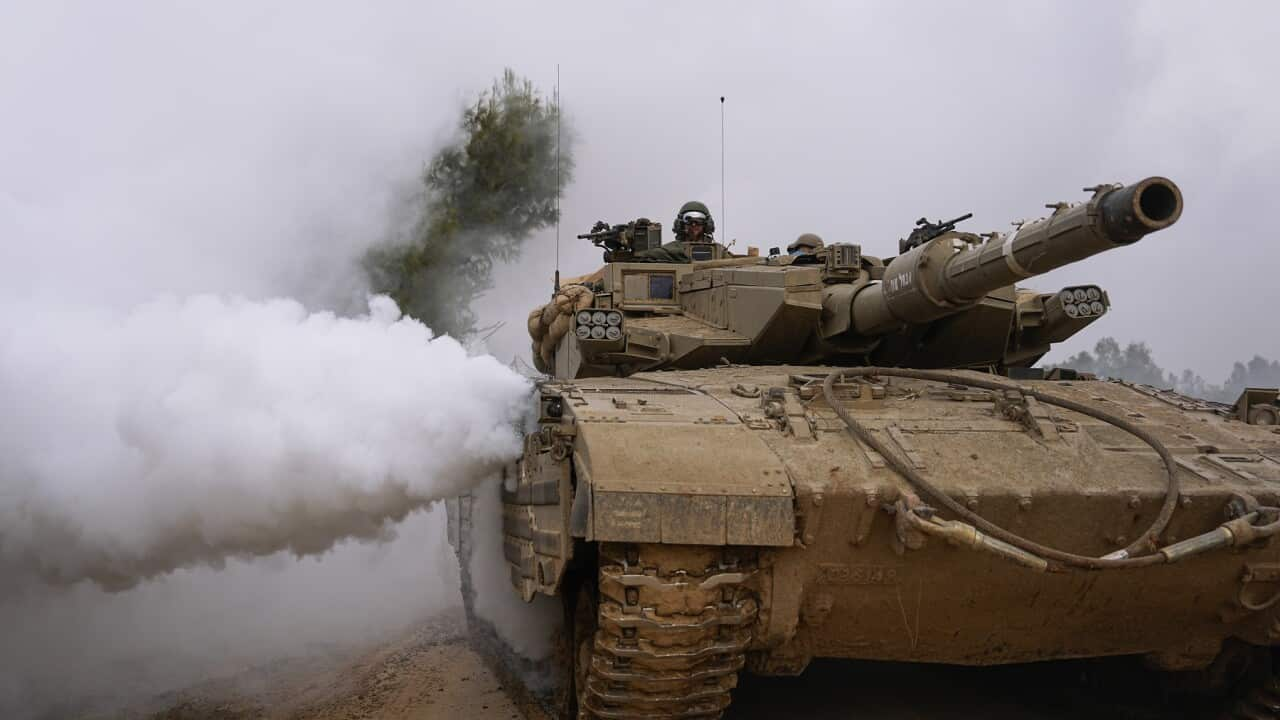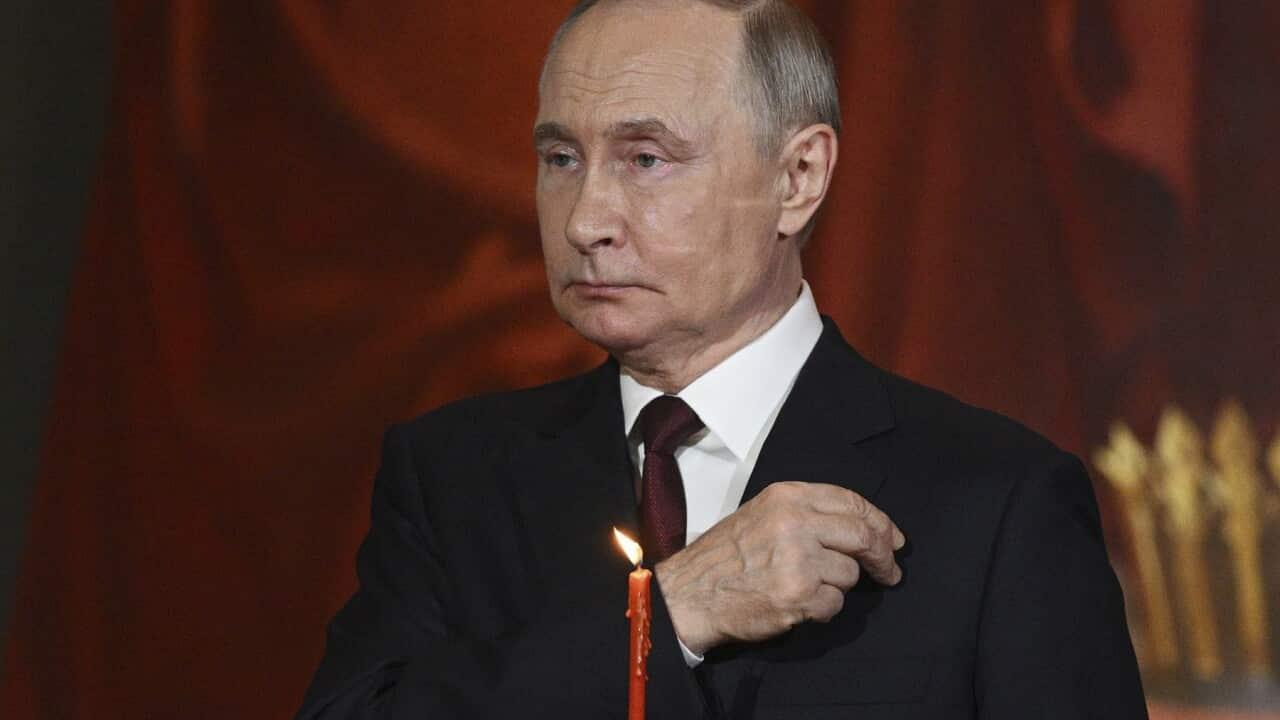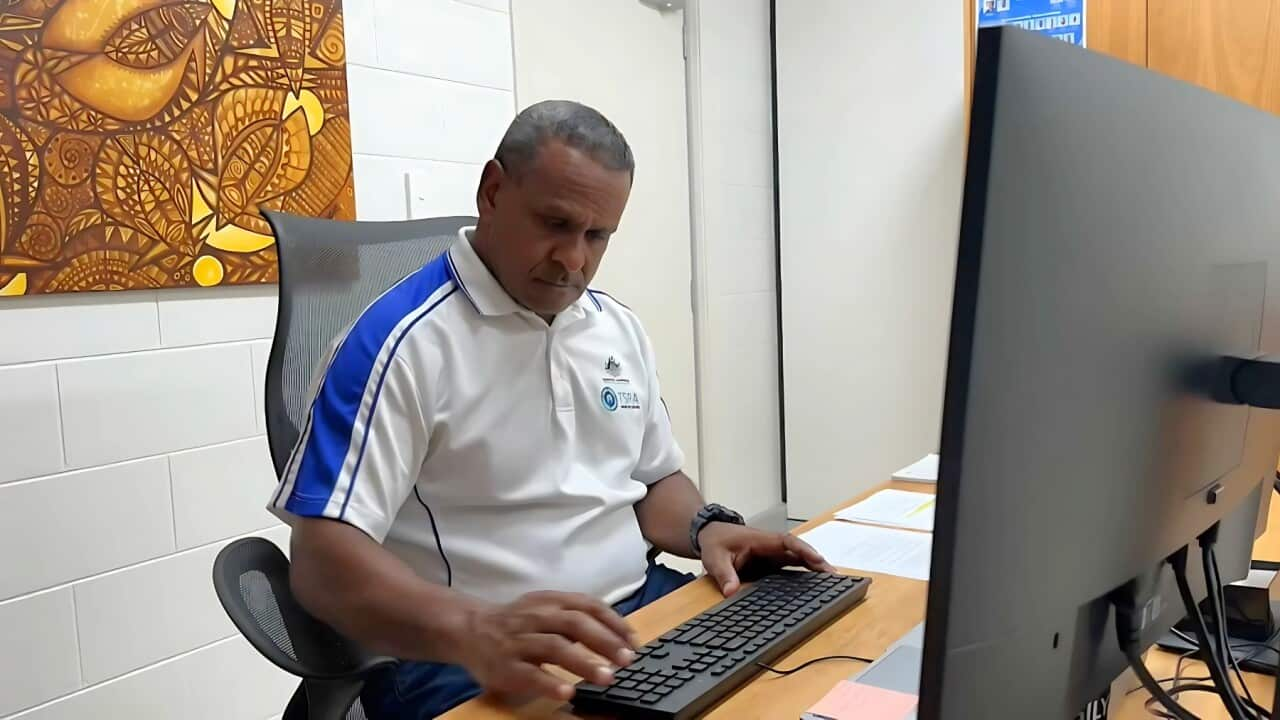TRANSCRIPT
Qatar has announced medicines for hostages in Gaza and humanitarian aid for civilians entered the war-torn Palestinian territory on Wednesday.
Under the deal, mediated by Doha and Paris, 45 of the around 100 hostages still held by Hamas in the enclave will receive medicine.
Unlike the week-long ceasefire which collapsed in November, this deal has seen no pause to fighting, with Israeli vehicles and tanks seen around the southern city of Khan Younis as it ramped up its offensive.
This resident says they shelled homes and a school where displaced Palestinians are sheltering.
“We don’t know, we just saw the tanks are above our heads. The tank shell entered from the window. I crawled on the stairs until I got to the ground floor. We stayed at the center of the house. Women and children, nearly 30, 40 people are with me. It is beyond imagination.”
In a statement on X, a senior member of Hamas' political bureau claimed that a condition of the deal was for every box of medicine for hostages, 1,000 boxes would go to Gaza residents.
A W-H-O official, Sean Casey, after spending five weeks in Gaza, has described conditions in hospitals there as "atrocious", with thousands of displaced Gazans, who now number 1.9 million according to the UN, using them for shelter.
He has highlighted the scale of the urgent need for aid.
“Every day we're trying to play catch up with the 60,000 injuries and the 200 plus new injuries that are occurring every day in a health system that is quickly losing its capacity. So, what I would ask for of anybody who has any ability to change this dynamic is one, a cessation of hostilities, so that the injuries can stop and that the aid can reach the people who need it the most. But short of that, improving access, simplifying access.”
The Health Ministry in Hamas-run Gaza says more than 24,400 people have now been killed in Gaza, since the group's October 7 attacks, in which Israel says 1200 people were killed, and around 250 taken hostage.
105 of those hostages were released in the November exchanges, and at least 27 are believed to have been killed since in Gaza amid intense fighting and strikes there.
Nevertheless, Israel continues to press its campaign, with Chief Military Spokesman Daniel Hagari saying three Israeli divisions were now operating in northern, central and southern Gaza.
Defense Minister Yoav Gallant has told military chiefs "the only way" to bring home hostages is to keep up the offensives.
“We continue fighting until victory. Not near, not roughly, not almost - until we strike the Hamas organization, take away all of its significant military capabilities and remove it from power in Gaza. Also, in the context of the hostages - we have no right to stop the fighting as long as there are hostages in Gaza. The only way and thing that brings hostages is military pressure.”
But international calls for a ceasefire are getting louder.
Foreign Minister Penny Wong, who has met with Palestinian and Israeli leaders in Jerusalem after a visit to Ramallah in the Occupied West Bank, where violence is also surging, has in the strongest terms yet articulated Australia's desire for a ceasefire under a two-state solution.
She says she has spoken to leaders about "Australians' concerns".
“Australia is a friend of Israel. But also a friend of the Palestinian people. Australians are increasingly concerned about the civilian toll and are increasingly concerned about the urgent need for humanitarian access. I've spoken about the risk of regional escalation, and we have spoken about settler violence.”
With regional escalation now a reality, the crisis continues to unfold in the Red Sea and Suez Canal shipping lane.
On Wednesday, the US designated the Iran-backed Houthi rebels in Yemen a “Specially Designated Global Terrorist” after the group’s attacks on commercial vessels in response to Israel’s offensives in Gaza.
National Security Council spokesman John Kirby says the designation will not affect US aid to Yemen, following the 2014 civil war in which Saudi Arabian airstrikes led to mass casualties and starvation.
“Today's designation targets the Houthis, not the Yemeni people. The United States remains the world's leading donor of humanitarian assistance for Yemen. We recognize that more than 15 million people in Yemen are still in desperate need of food, water, medicine, and we are taking a range of steps to ensure that these sanctions preserve the ability of aid organizations to be able to deliver all those much needed supplies.”
But just hours after accusing the US of hypocrisy over its support for Israel's offensives and strikes in Gaza, which they described as "terrorist" in nature, the Houthis said they had launched a bomb-carrying drone into a US-owned ship.
Houthi Military Spokesperson Yahya Sarea claimed the attack, in which UK Marine Trade Operations says no-one was injured, was a direct hit.
“In support of the Palestinian people's grievances, and in support of the steadfastness of our brothers in the Gaza Strip, and in response to the American-British aggression against our country, the Yemeni (Houthi) naval forces carried out a targeted operation against the American ship Genco Picardy in the Gulf of Aden using a number of suitable naval missiles. The hit was accurate and direct”
At the World Economic Forum meets in Davos this week, discussions have inevitably focused on the geopolitical consequences of the conflict, with concerns raised about the impact sea of Red Sea Shipping disruption on oil prices.
Iranian Foreign Minister Hossein Amir-Abdollahian has come under fire for Iran's support of the Houthis, as well as Iranian strikes this week in Iraq, Northern Syria and now Pakistan, in which Pakistan says children were killed.
United Nations Secretary General Antonio Guterres has called on the world not to be distracted by cynical aims, making a human appeal for a lasting ceasefire in Gaza.
“The world is standing by as civilians, mostly women and children, are killed, maimed, bombarded, forced from their homes and denied access to humanitarian aid. I repeat my call for an immediate humanitarian ceasefire in Gaza, and a process that leads to sustained peace for Israelis and Palestinians, based on a two-state solution. That is the only way to stem the suffering.”













